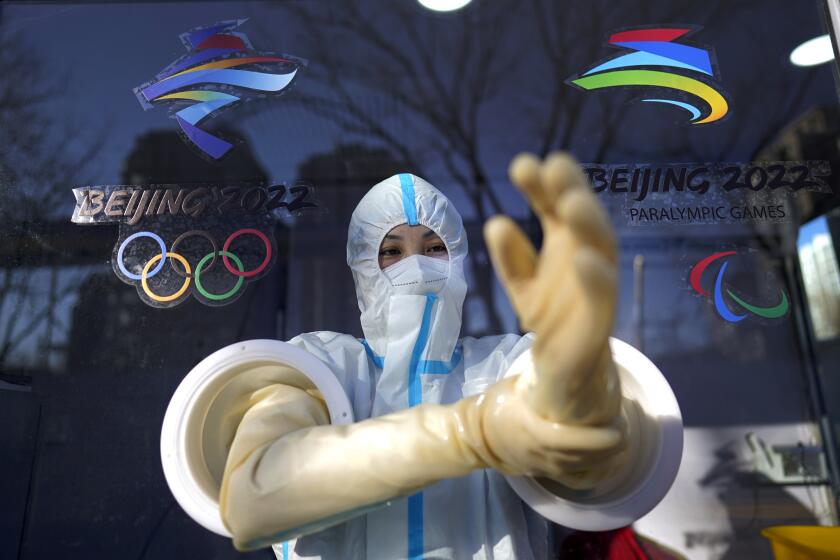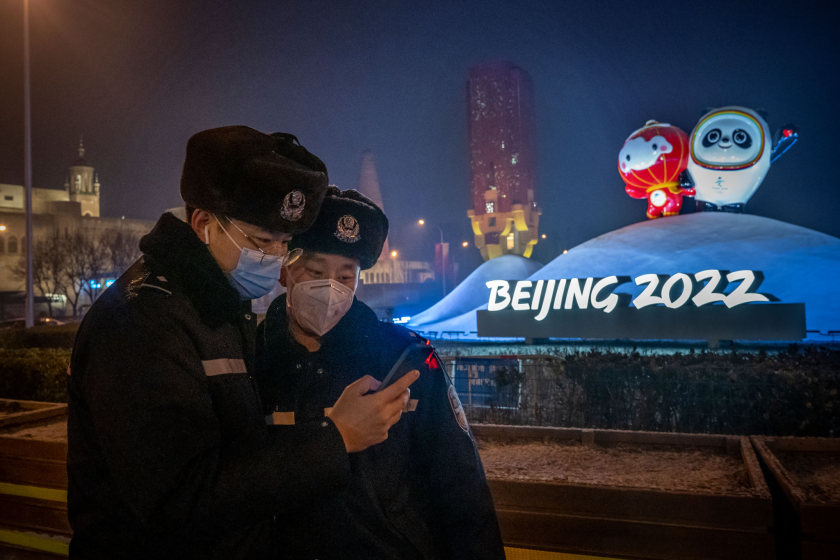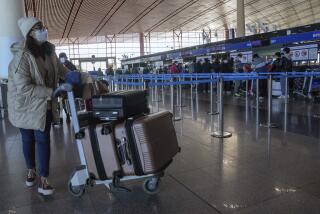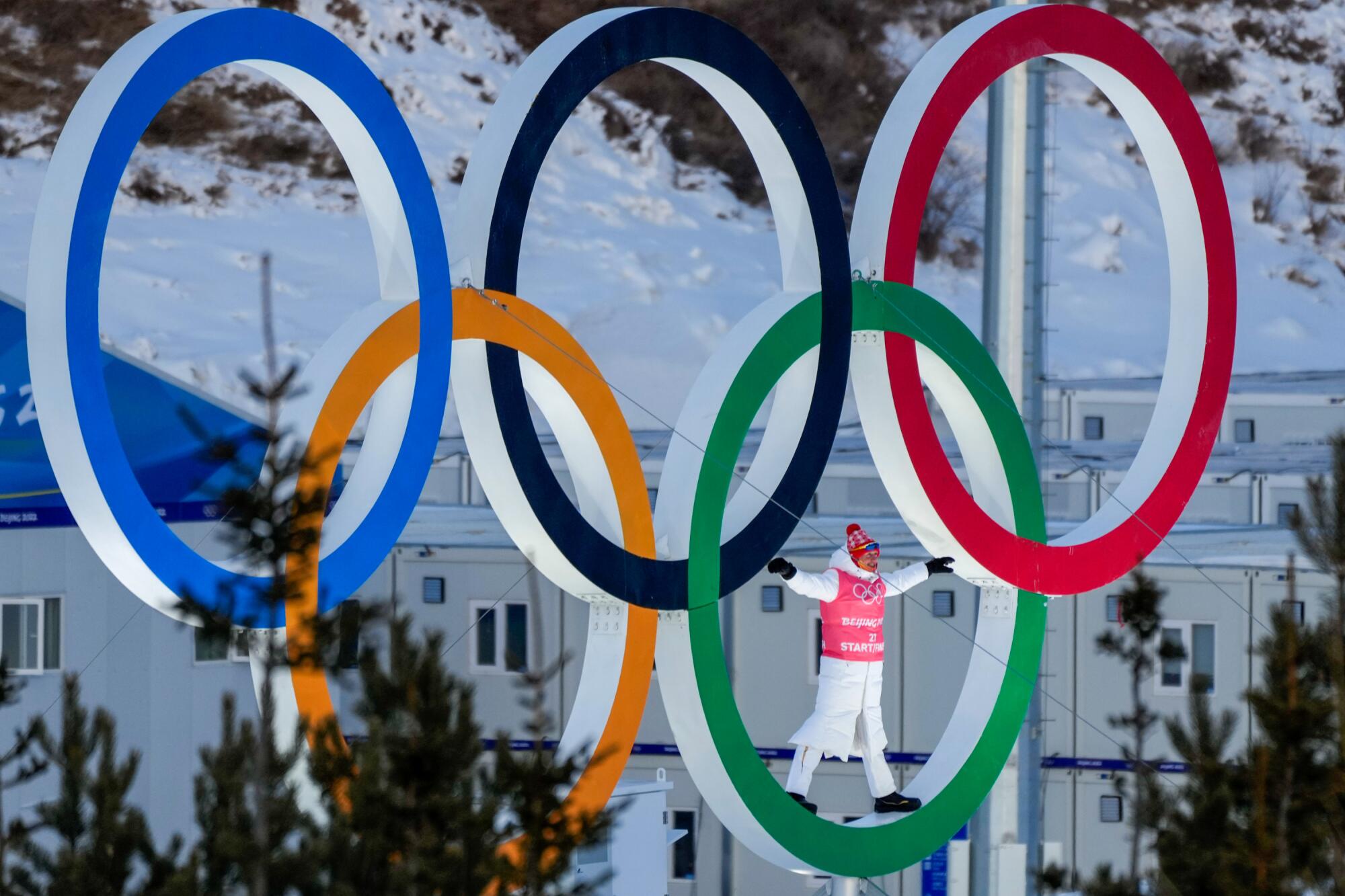
- Share via
BEIJING — China had something to prove when it hosted the 2008 Summer Olympics.
Communist Party leaders framed the sporting event as a coming-out party, a chance to proclaim their arrival as a global superpower. A state-run news agency called it “a historical event in the great renaissance of the Chinese nation.”
“Winning the host right,” the news read, “means winning the respect, trust and favor of the international community.”
Fourteen years later, as the Games return to Beijing in their winter format, the stakes have changed. It might be enough just to avoid calamity.
“Obviously, mega-events are part of China’s pursuit of soft power,” said Susan Brownell, a leading authority on sports in the Asian country. “But I think there are risks.”
Controversy has beset the 2022 Winter Olympics on two fronts, casting a harsh light on the host country’s human rights record while raising concerns about a coronavirus outbreak among thousands of athletes, coaches and media.
Olympic athletes are coping with intense anxiety over COVID test results, with positive results a constant threat to knock them out of competition.
This week, an official with the local organizing committee insisted “there’s no need to worry” even as infections continued to multiply within the Olympic “closed-loop” system. Scholars who study Chinese culture point to the concept of “face,” a fundamental desire to look good in public.
“If there was an outbreak that laid waste to a significant number of athletes, that would be a terrible thing for them,” said Clayton Dube, director of the U.S.-China Institute at USC. “You don’t invite people to a party and be happy if they all take ill.”
Beijing first attempted to host the Summer Olympics in 2000 and was considered a front-runner before losing a close vote to Sydney. Eight years after that stinging defeat, its bid for 2008 won handily, beating out Toronto, Paris and Istanbul.
Not all went smoothly. Pro-Tibet demonstrations arose on the international route for the Olympic torch relay and the capital city’s pervasive smog raised concerns about athlete health. Then-President Hu Jintao warned party officials to pay close attention to foreign news coverage; rather than enacting policy reforms, he pushed for a stronger public-relations effort.
The Games ultimately kicked off with a spectacular opening ceremony — still considered among the best ever — and the competition was considered a success.
“It rebounded very much to China’s benefit,” Dube said. “You saw that prowess and economic advance on display.”
The Games, which start Friday with the opening ceremony, will give party leaders another chance to publicize technological and economic advancements on a global stage. They can boast that Beijing is the first city to host in summer and winter.
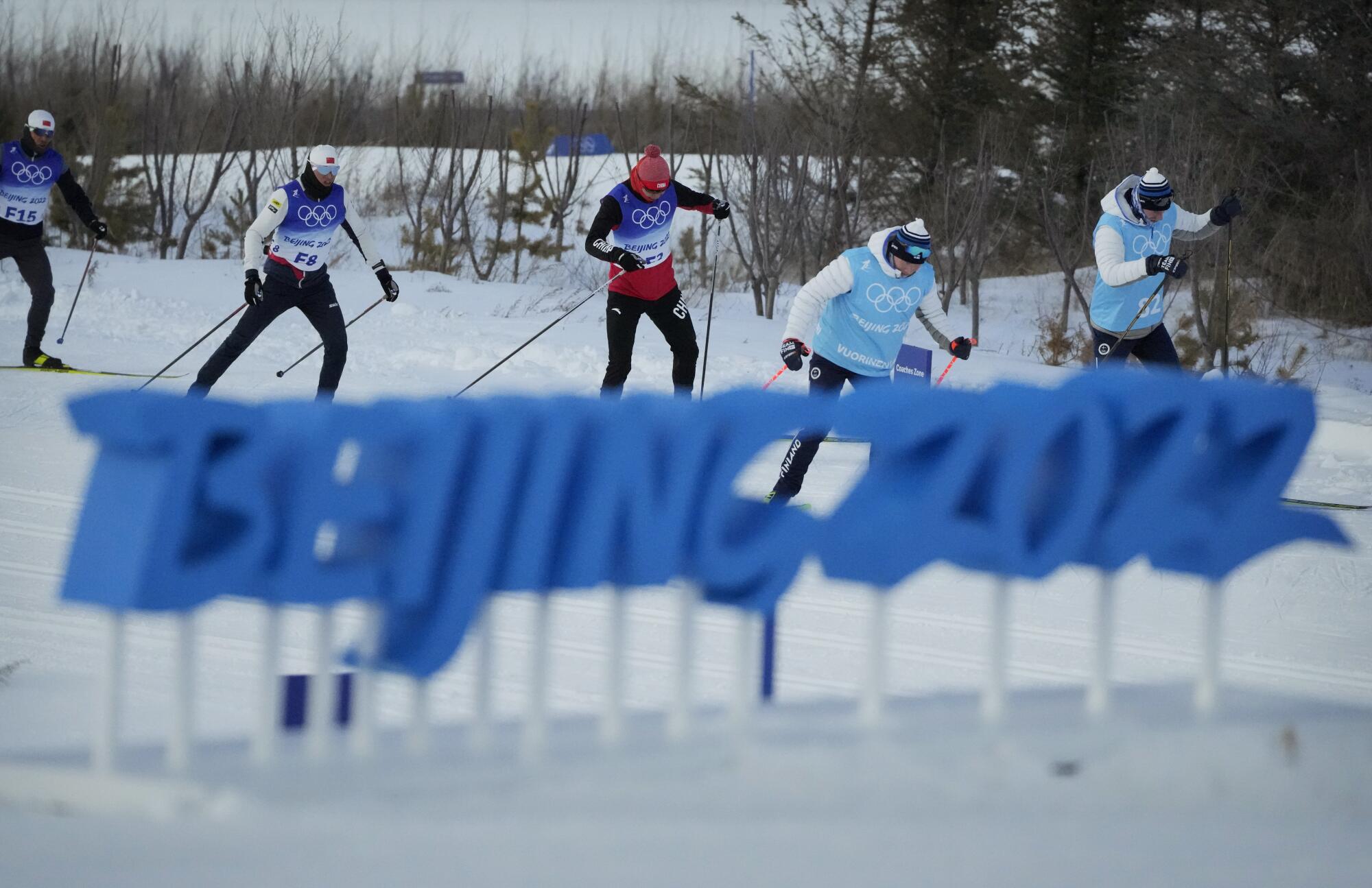
“It’s an official policy to increase China’s presence and voice in the world,” said Brownell, a former heptathlete who competed for Beijing University while attending school there and is now an anthropology professor at the University of Missouri-St. Louis.
As this opportunity drew nearer, Chinese President Xi Jinping was expected to meet with his Russian counterpart, Vladimir Putin, on the day of the opening ceremony. A potential Russian invasion of Ukraine, which would overshadow the Olympics, figured to be a topic of discussion.
Meanwhile, the government has largely ignored claims of human rights abuses, particularly in relation to the Muslim Uyghur minority, and has pushed back against a diplomatic boycott by the U.S., Britain and other countries. Foreign ministry spokesman Zhao Lijian told reporters the boycott “seriously violates the principle of political neutrality of sports established by the Olympic charter.”
But international relations are only part of the story for these Games. The government might have something more important in mind.
Chinese television has broadcast nightly reports on the upcoming competition and the global attention it will draw. Official news agencies have published articles praising organizers for their efficiency and attention to public health.
The Olympics claim they’re about promoting peace and goodwill — so why do host countries tend to become more authoritarian?
“The domestic audience is their principal concern,” Dube said of party leaders. “Because their concern is to remain in power.”
And that might be where the greatest risk lies.
Recent months have seen an aggressive, “zero-tolerance” approach to COVID-19 in China, with lockdowns of businesses, factories and neighborhoods where coronavirus cases arise. Those who study the culture have heard grumbling among the populace about whether the sacrifice is worth it.
An Olympics with limited cases and no significant spread to the outside community could serve as validation for the government.
It would be a very different story if notable athletes or entire teams were forced to withdraw because of positive tests, robbing the Games of star power. The fact that Tokyo was able to conduct its Olympics relatively smoothly last summer would make any major disruptions in Beijing even more embarrassing.
Lately, confirmed infections inside the “closed-loop” system have risen by 30 to 50 a day. Of the 287 total cases, 102 have involved athletes and team officials.
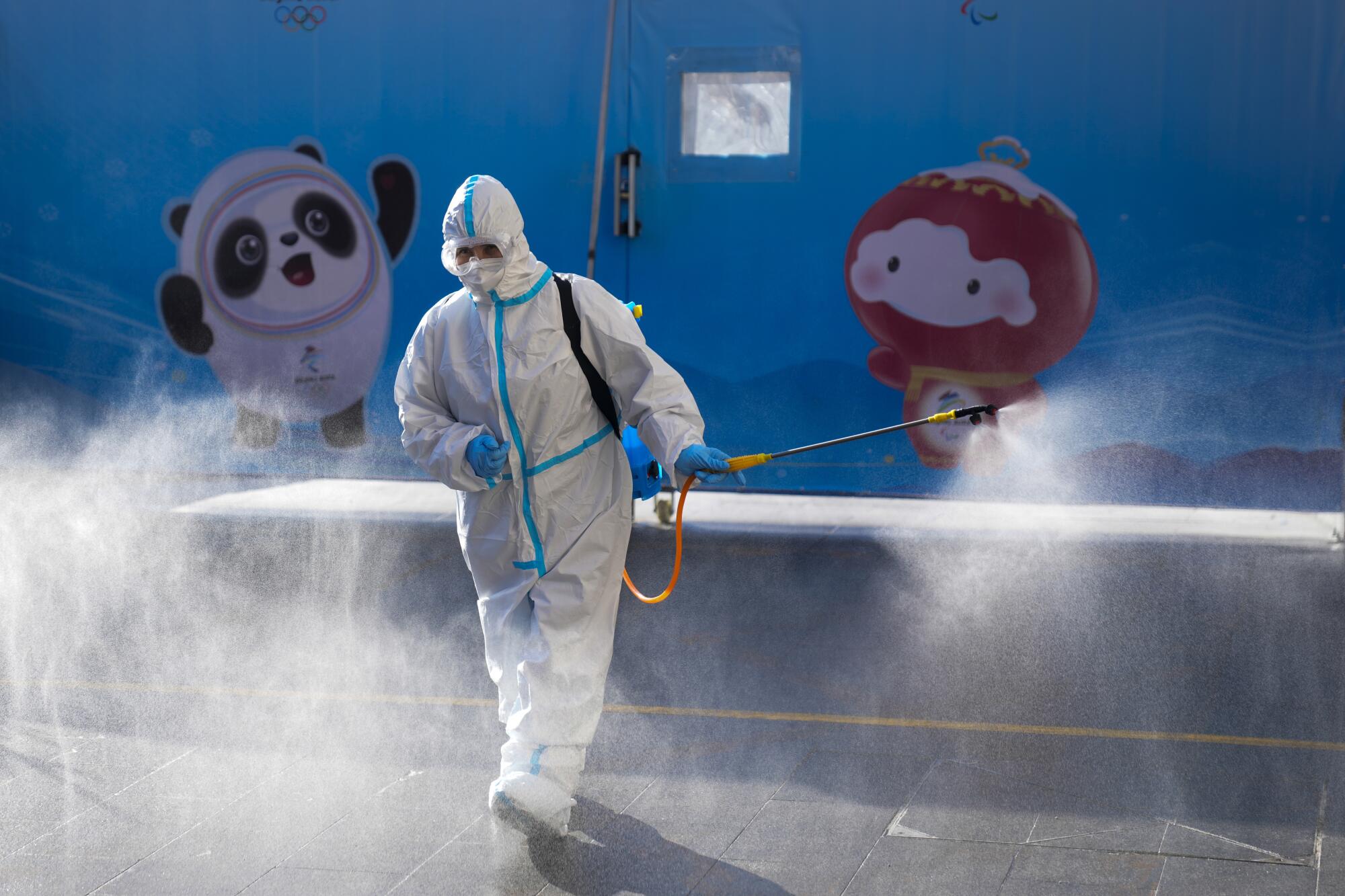
Big names such as U.S. bobsledder Elana Meyers Taylor and Marita Kramer, a top Austrian ski jumper, have tested positive. Some athletes, including members of the Canadian team, have been infected but quickly progressed out of COVID-19 protocols.
“The vast majority of people who are positive are well, a lot are asymptomatic,” Dr. Brian McCloskey, chairman of the Beijing 2022 medical expert panel, said earlier this week. “There have been 11 people hospitalized because they have a symptom. None of those are seriously ill in any way.”
Officials hope new cases will dwindle as competition begins and foreign athletes stop arriving in large numbers. A largely trouble-free Olympics would give China the boost it is looking for.
The next week or so will go a long way to determining if the gambit pays off.
“If China fails to control outbreaks or if the response to the coronavirus is perceived as too draconian, certainly critics are going to use that to say ‘What did you expect?’” Brownell said. “There is a fine line to tread.”
More to Read
Go beyond the scoreboard
Get the latest on L.A.'s teams in the daily Sports Report newsletter.
You may occasionally receive promotional content from the Los Angeles Times.

